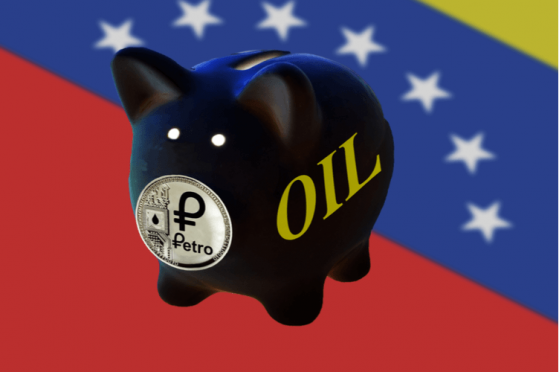Who is Kevin Hassett? Wolfe looks at the Trump ally tipped to become Fed Chair.
Venezuela’s cryptocurrency El Petro seems to be moving closer to legitimacy.
Russian and Venezuelan officials are in discussions over allowing Caracas to use its oil-backed digital currency in payment for Russian automotive parts and components, Venezuelan foreign trade minister Jose Vielma was cited as saying by Russian news agency Sputnik.
Vielma stated:
"[The issues of cooperation] include the purchases of automotive parts and components, of tires and batteries, as well as assembling of these vehicles in our country and the forms of payment, in which we include the payments with the use of Petro.”
The high-level meeting between aims to strengthen the alliance between the two countries, including their cooperation in several areas.
Venezuelan President Nicolas Maduro has suggested including the Petro on the agenda as his cash-strapped government is pressed to deliver basic necessities to the starving population.
Venezuela launched the Petro in February to circumvent Washington-led economic sanctions against the Maduro regime. He claimed that the cryptocurrency had raised about $735 million on the first day of its pre-sale. According to the administration, the Petro initial coin offering (ICO) has raked in at least $5 billion in total, which would make it the most successful ICO in history if proven correct.
The digital currency, which is backed by five billion barrels of oil, reportedly attracted over 186,000 offers of certified purchase from at least 127 countries. Maduro has said that the buyers include 3,523 entrepreneurs and 83,000 individuals.
Russian backing
According to a Time Magazine report, there is evidence pointing to Russia as providing assistance to Venezuela with the Petro launch. Several Russian bankers, officials, and entrepreneurs were reportedly involved in its development to test for ways around US sanctions against Eastern economies.
Other news agencies have also claimed that outside influence played a key role in the development of the Petro.
Russia-Venezuela trade
According to Sputnik, Russia has expressed interest in buying various goods from Venezuela, among them aluminum, cacao, coffee, and steel.
Venezuelan Vice President Wilmar Castro Soteldo said both sides had signaled their intention to raise the volume of bilateral trade by 30% before the end of 2018.
This article appeared first on Cryptovest
